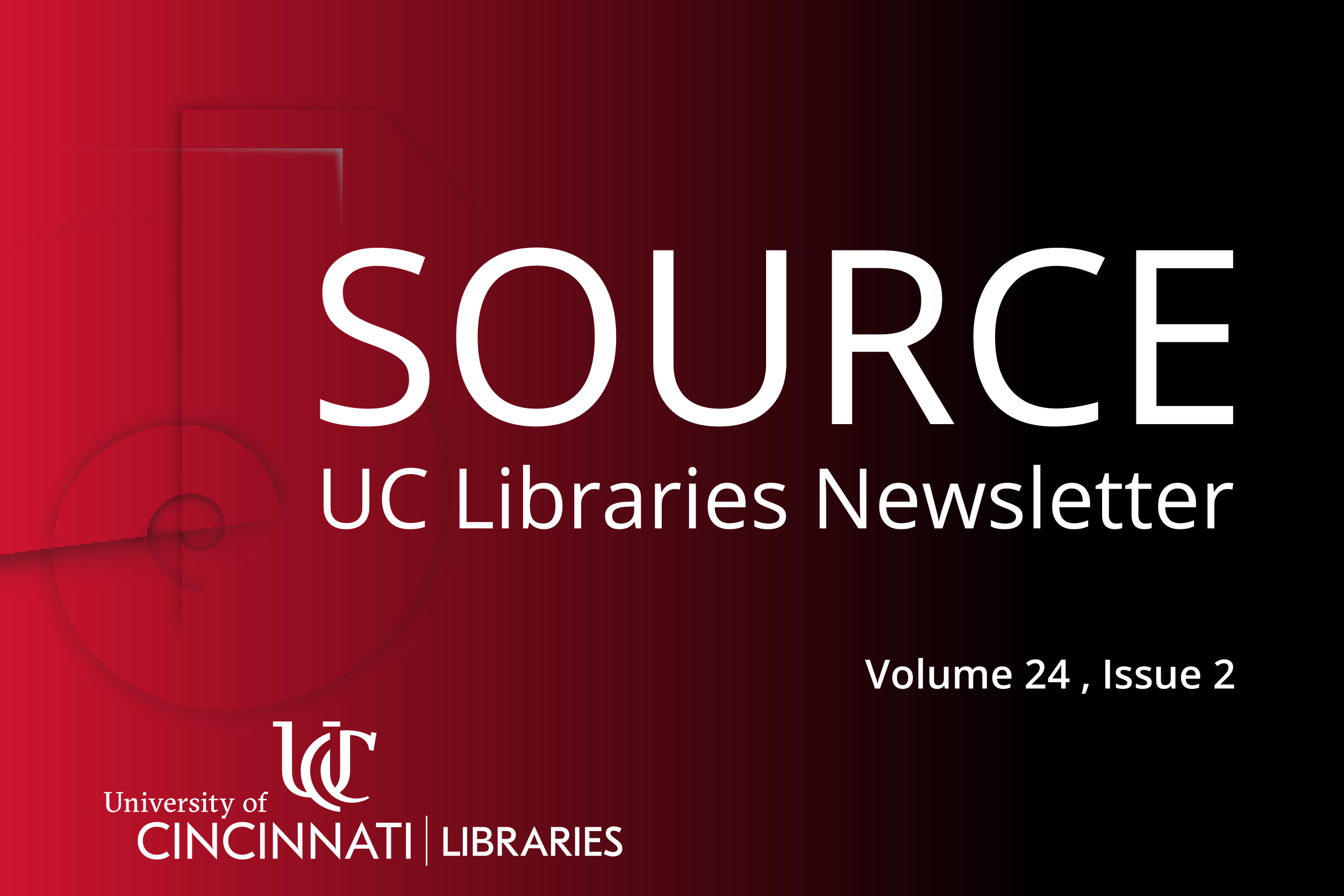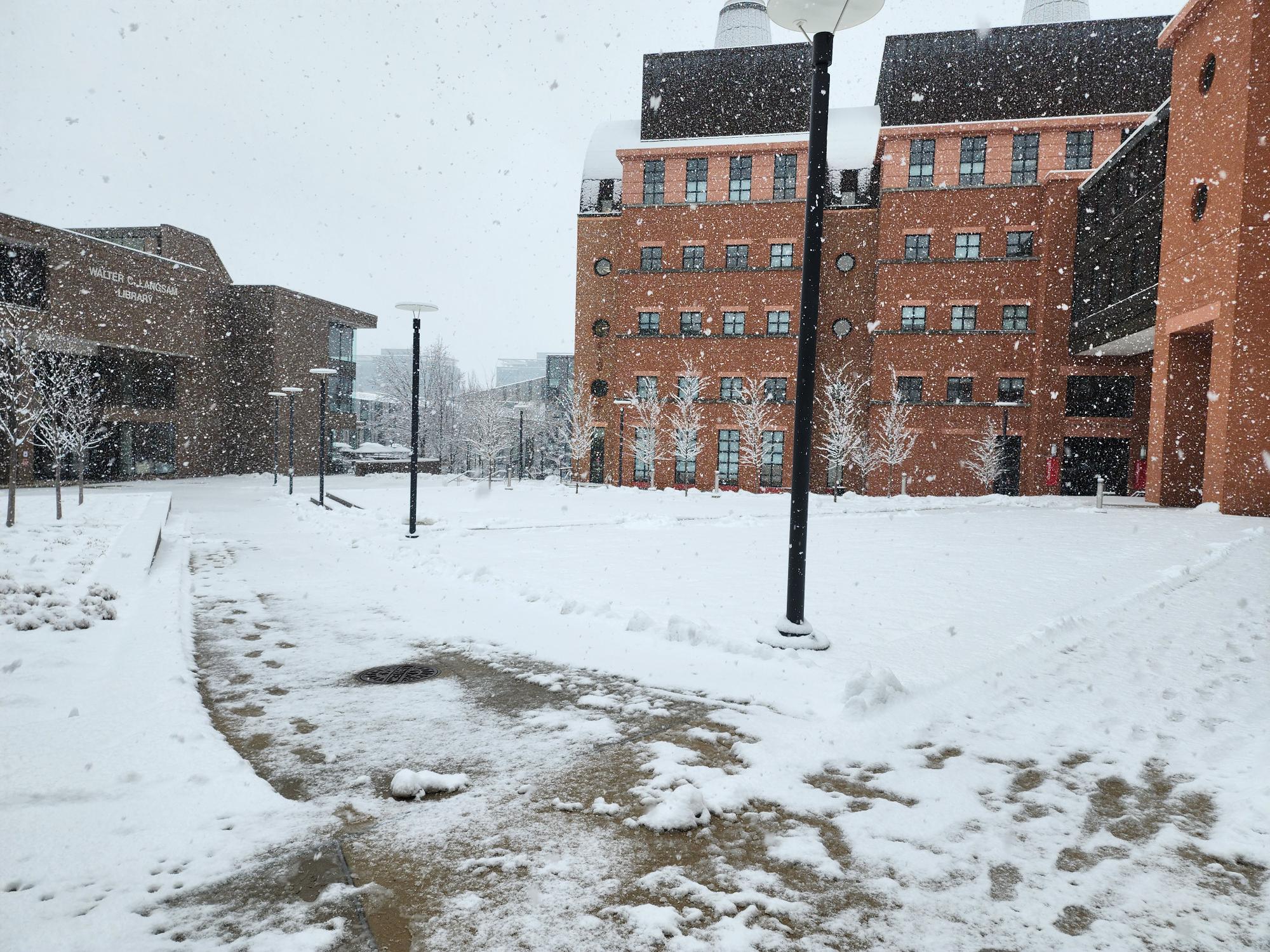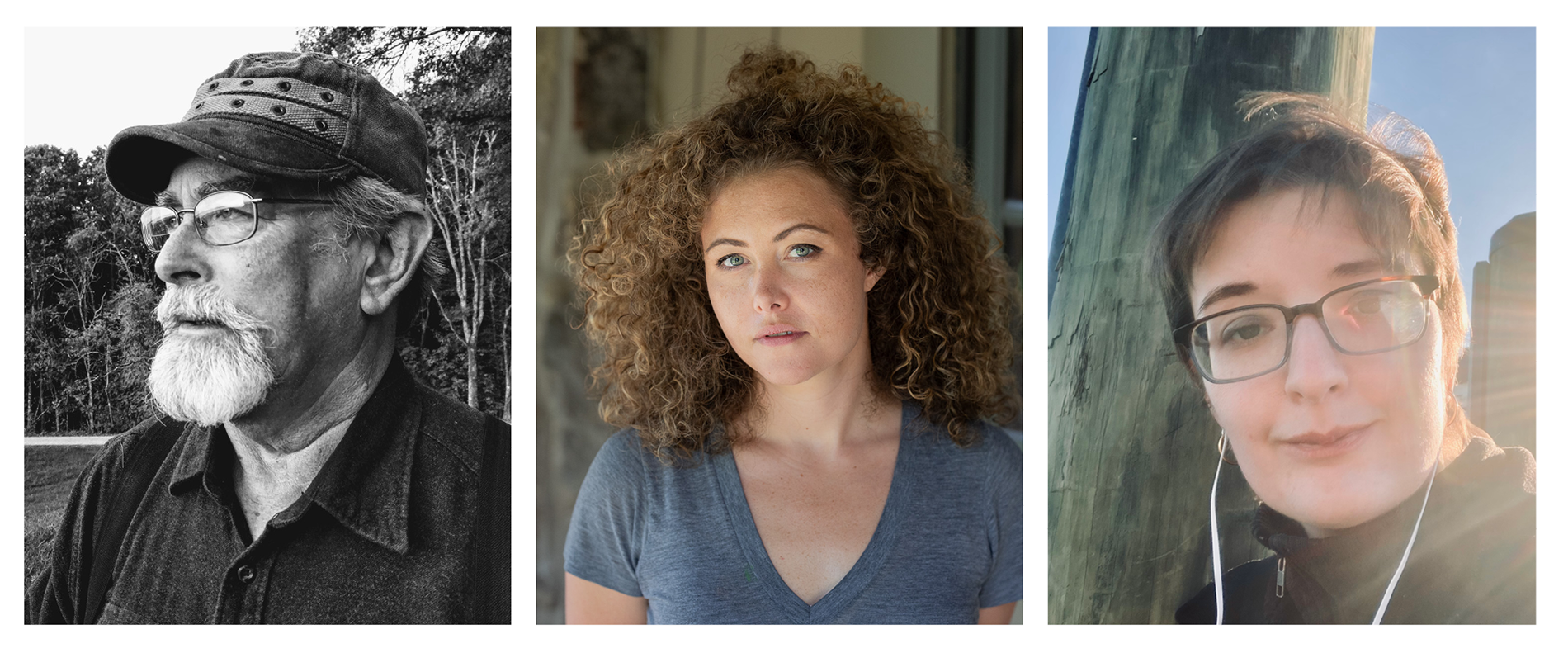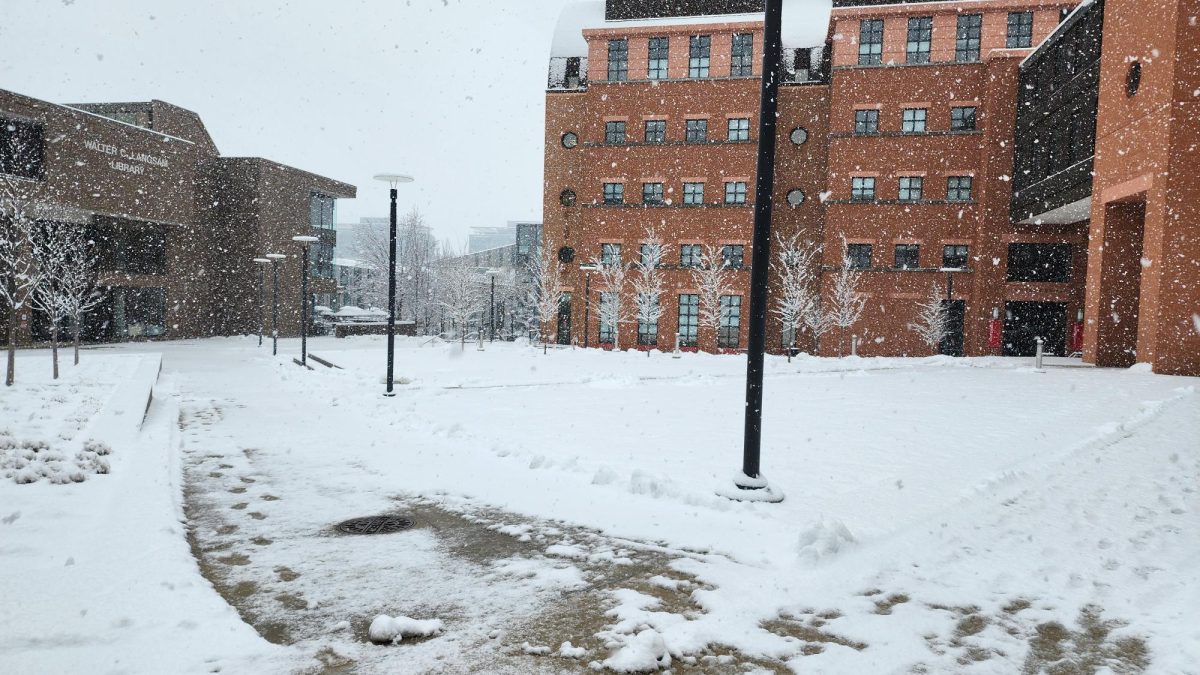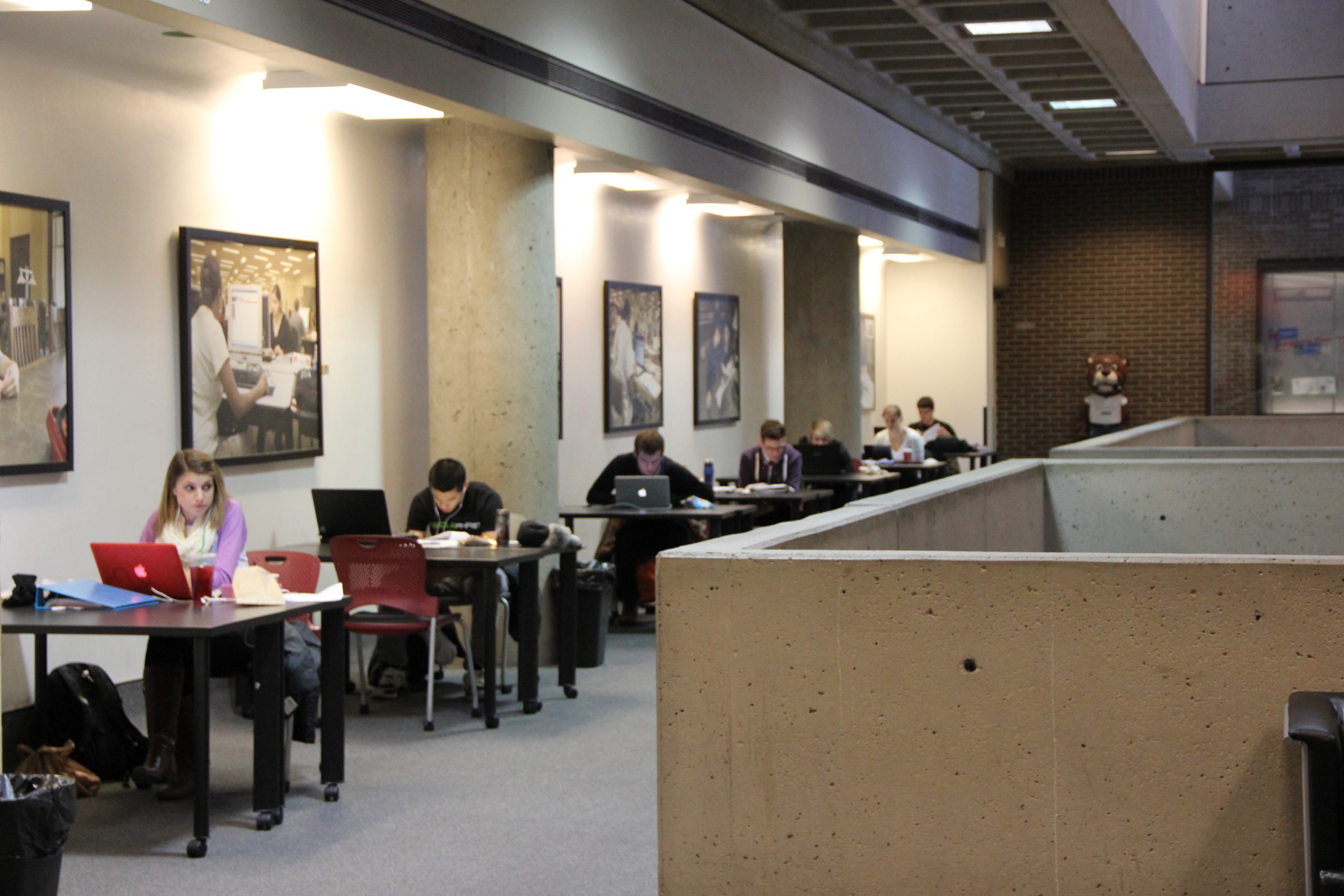Join UC Libraries this spring at events to celebrate newly updated spaces that foster an adaptive, accessible and productive user experience.
Science Library – February 16
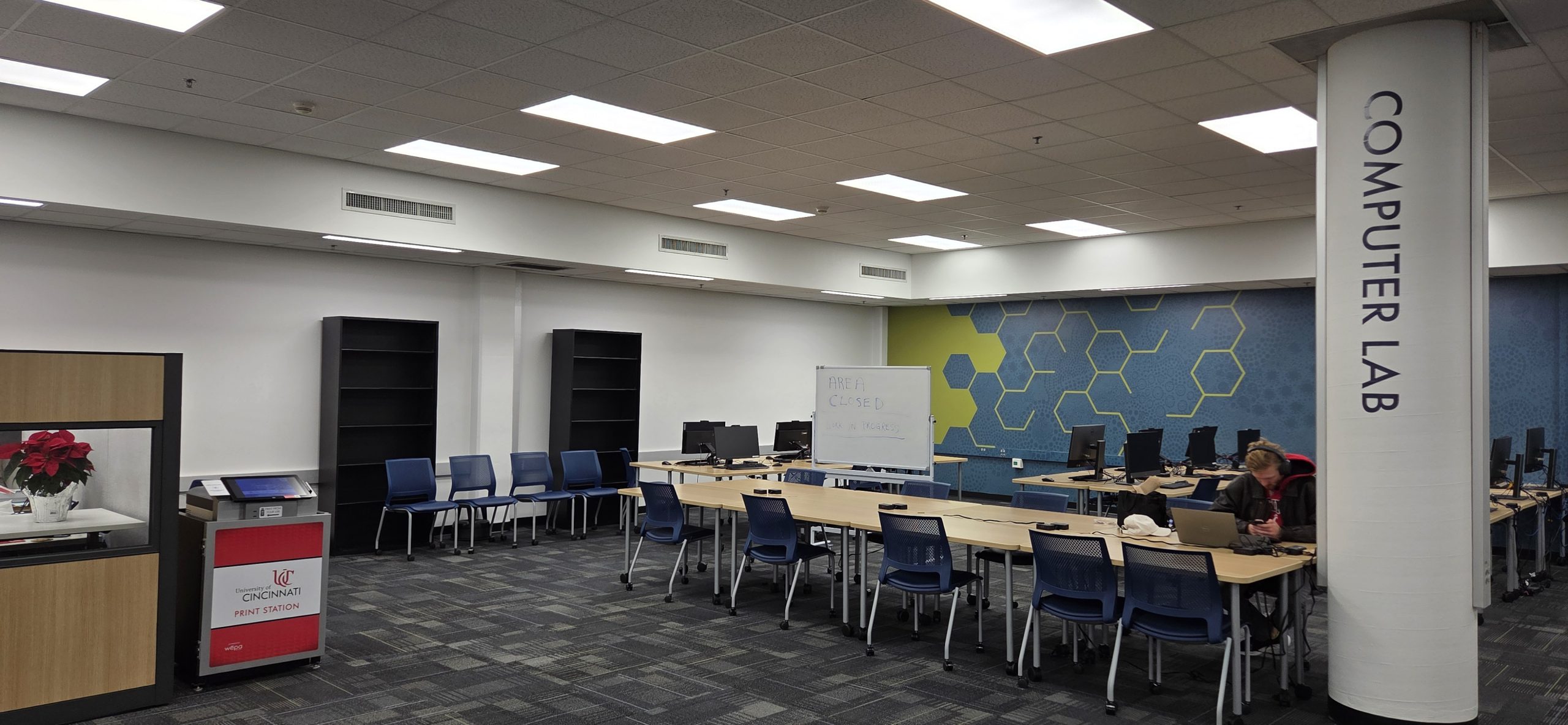
The fall semester saw the opening of a combined Science Library in Braunstein Hall. This thoughtfully transformed space creates a united hub of services, spaces, technology and specialized collections dedicated to supporting the teaching and research needs of the Natural Sciences departments within the College of Arts & Sciences. Although its collections focus on the sciences, the Science Library invites ALL to come and enjoy and make use of the revitalized space in the heart of UC’s campus.
Celebrate Our Grand Opening!
We invite you to join us on Monday, February 16 from 2:00-4:00pm for the Science Library’s Grand Opening Reception! Enjoy refreshments, learn about our new spaces and services, be inspired by our special collections displays, explore science through demonstrations and more!
DaVInci @ Langsam – April 2
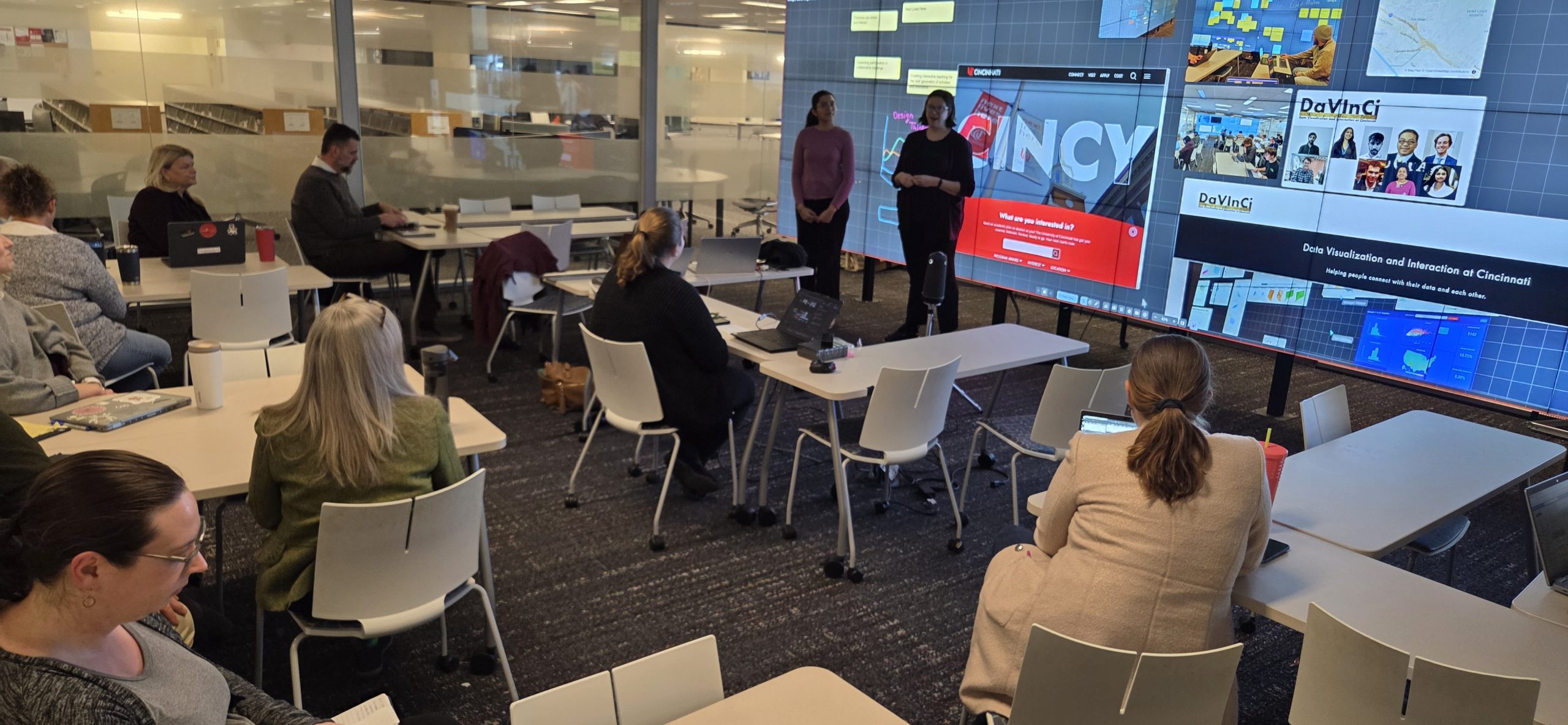
The Data Visualization and Interaction at Cincinnati (DaVInCi) team led by Jillian Aurisano, assistant professor in the Department of Electrical Engineering and Computer Science, has created a collaborative space in the library. DaVInCi@Langsam is designed to support collaboration in research and teaching at UC. It offers a large display screen and specialized software that allow everyone in the room to share content and interact. Ongoing research is exploring new ways to heighten interaction with displayed content on the expansive display.
Drop into the DaVInCi@Langsam Open House
Check out the possibilities of the collaborative space at an open house on Thursday, April 2 from 9:30-11:30am, Langsam Library’s 4th floor. Enjoy refreshments while viewing demos of the technology and learn how to reserve and use the space.
CECH Library Reading Room – April 21
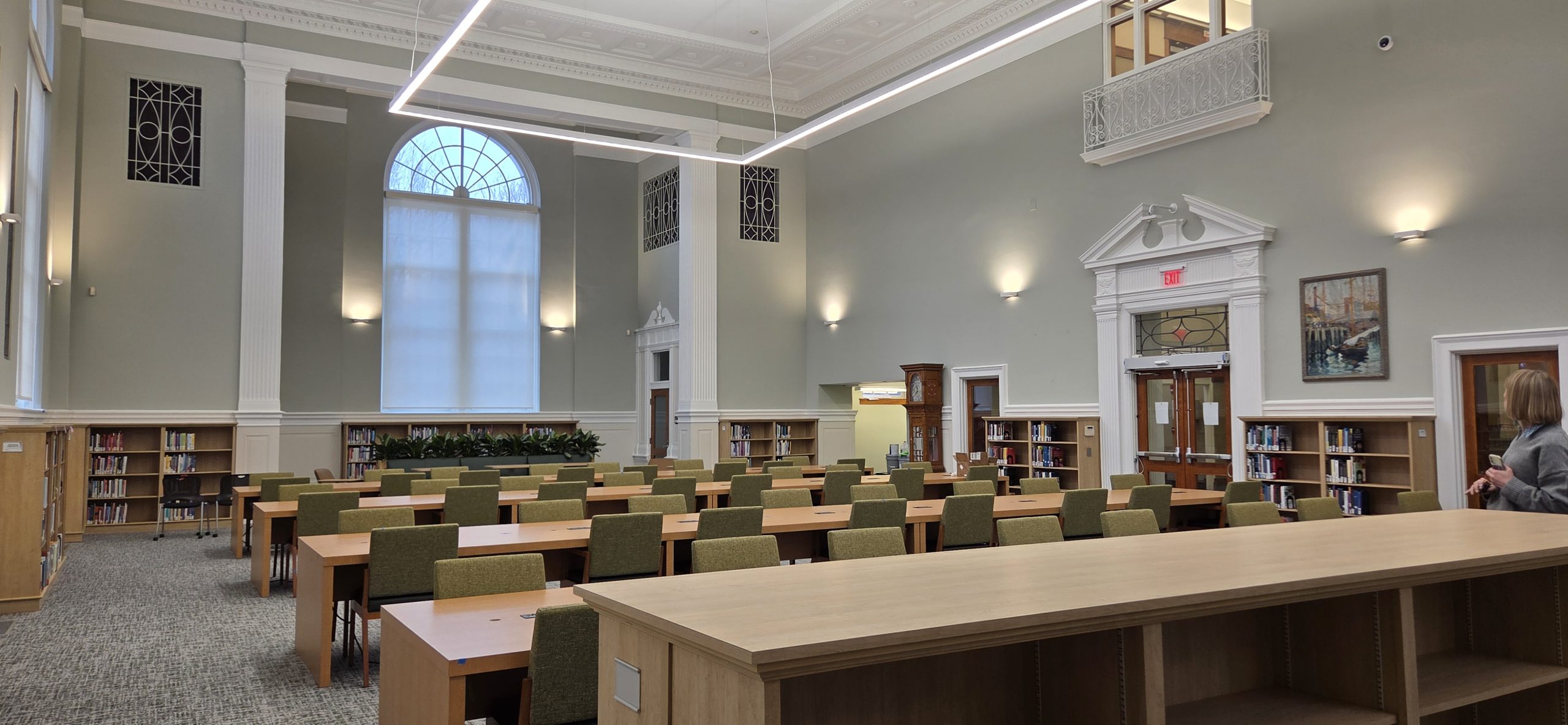
The beginning of spring semester brought with it the opening of the renovated College of Education, Criminal Justice and Human Services (CECH) Library Reading Room. Located on the 4th floor of the Teachers-Dyer Complex, and totaling more than 3,000 square feet, the reading room is accessible via the staircase in the CECH Library or directly for those with a Bearcat ID.
Bathed in natural light, the renovated reading room features flexible, soft seating arrangements in the room’s south and north ends and four large study tables with integrated lighting (coming soon) and power access. An inclusive, reservable study room (400B) features adaptive lighting and study and focus tools.
Celebrate the CECH Library Reading Room Opening
Tuesday, April 21, 2:30-4:30pm, CECH Library Reading Room, 400 Teachers-Dyer Complex. Tour the space, hear remarks from UC Libraries and CECH and enjoy the refreshed space.

